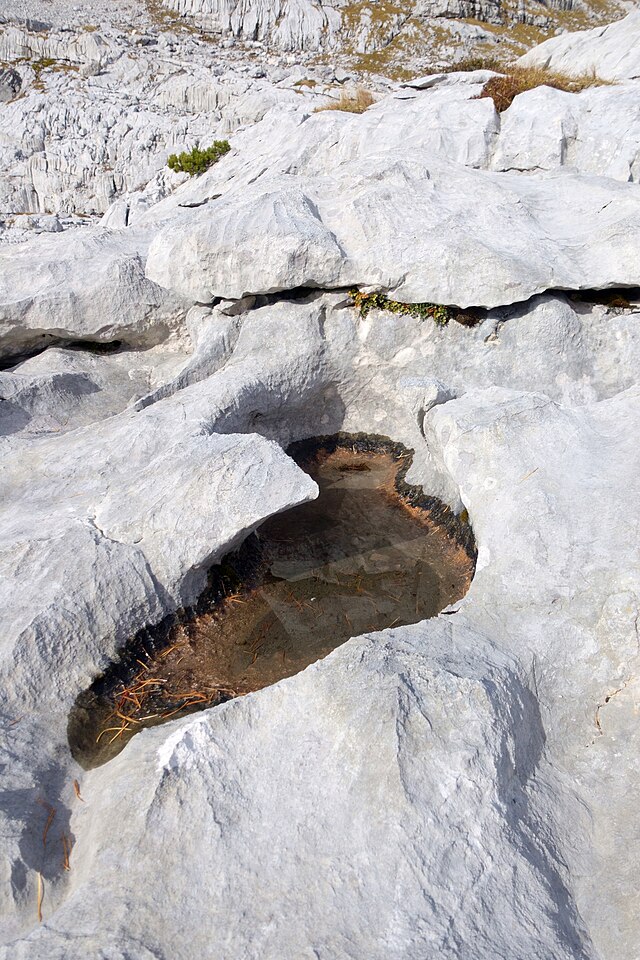Top Qs
Timeline
Chat
Perspective
Kamenitza (geomorphology)
From Wikipedia, the free encyclopedia
Remove ads
Kamenitzas or solution pans are closed depressions that develop on rock surfaces in karst regions formed by dissolution weathering. Usually they form on horizontal, or slightly inclined limestone pavements where water does not flow but collects into the small depressions. The presence of static water produces small, round, closed pans that are shallow as compared with their depth. Usually they have a diameter of several decimeters, but kamenitzas with a diameter up to 6 m have been documented. Overflow usually creates a solution runnel (karren). This overflow channel often lowers to the extent that it reaches the kamenitza bottom, where further development stops and the pan does not widen any longer. The name kamenitza is of Slavic origin where kamen means pebble. It came from the wrong hypothesis that small pebbles rotating in a water flow are forming the kamenitzas.[1]
This article has multiple issues. Please help improve it or discuss these issues on the talk page. (Learn how and when to remove these messages)
|

Remove ads
See also
References
Wikiwand - on
Seamless Wikipedia browsing. On steroids.
Remove ads
